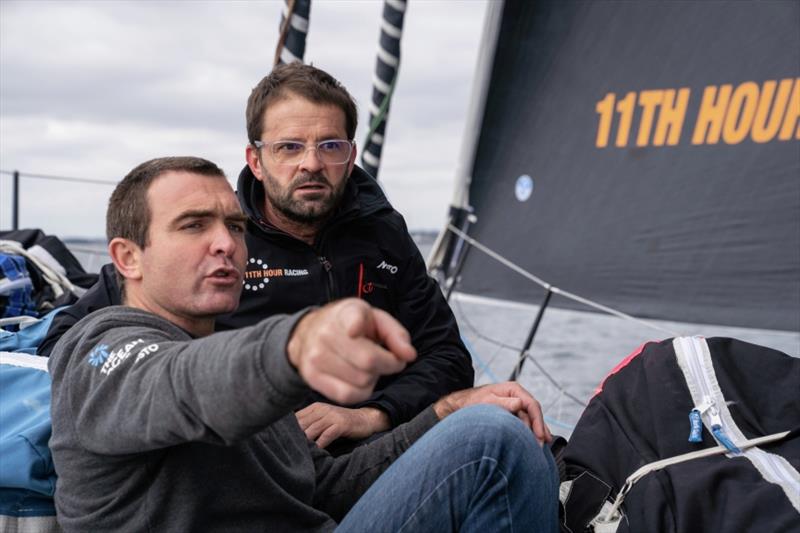
Charlie Enright looks ahead to The Ocean Race Europe
by The Ocean Race 27 Mar 2021 23:44 PDT

After a winter of remote working 11th Hour Racing Team returns to the Bay of Biscay in © Amory Ross
The skipper of 11th Hour Racing Team says the inaugural edition of The Ocean Race Europe requires a focus on tactics, teamwork and boatspeed...
As he settles back into training with his team in Europe, we caught up with Charlie Enright, the skipper of 11th Hour Racing Team, to get his thoughts as the team looks ahead to The Ocean Race Europe in May/June.
Charlie, it's great to see the team getting back out on the water now with a full programme of training and racing planned for this season. It all kicks off with The Ocean Race Europe, the first opportunity to race in a fully crewed configuration in the IMOCA. Why is this race important to your team?
The Ocean Race Europe will be a great opportunity to line up with the other IMOCA 60s and for the first time fully crewed. Even though it looks like we'll have one of the only older generation boats, the plan is to have new foils and we are eager to see how they perform.
You've done a few transatlantic deliveries in fully crewed mode over the past two years - what have you learned on those passages that you can apply ahead of racing?
Transatlantics are a lot different to coastal races, so I'm not sure how much of our learning over the past 18 months or so will apply! The boat is well equipped for more people living offshore but there's not much 'living' to be had on these shorter, sprint legs. We've been practising our boat handling and sail changes but ultimately it's still all about speed through the water, and making the right tactical decisions.
What do you see as the biggest challenge for teams and sailors who spend more time in short-handed mode as they set up with a larger crew?
Honestly, in a race like this, with shorter legs, there shouldn't be a lot of challenges. Those more used to short-handed racing just need to accept the help of more hands to do the heavy-lifting!
The Ocean Race Europe consists of three short legs, a few days at the most... how do these sprints compare to the marathon pace of the around the world race?
These sprints are very different from the typical Ocean Race legs that last 20 or more days, or the non-stop laps of the planet that take 70 plus days. In a lot of ways these shorter legs are more difficult because you're always on, and rarely get into any kind of watch system.
Tactical decisions can become more important because you don't get a lot of time to catch-up if you get them wrong, but as always...speed can make you look pretty smart!
How does The Ocean Race Europe fit into the team's overall programme as you prepare for the around the world edition of The Ocean Race in 2022-23?
The Ocean Race Europe is a great opportunity to introduce IMOCA teams to the concept of crewed racing. It will be great to see the boats pushed to their fullest potential, with extra hands, over the course of entire legs. Given the race course, we should see a lot of different conditions which will help our overall development a lot, particularly around our sail program. We are all really looking forward to getting back out there and racing again.
Any other thoughts as you look ahead to the race?
France is unique in that they've been able to sail short-handed through most of the pandemic. For most of us, it will just be great to just get racing again!